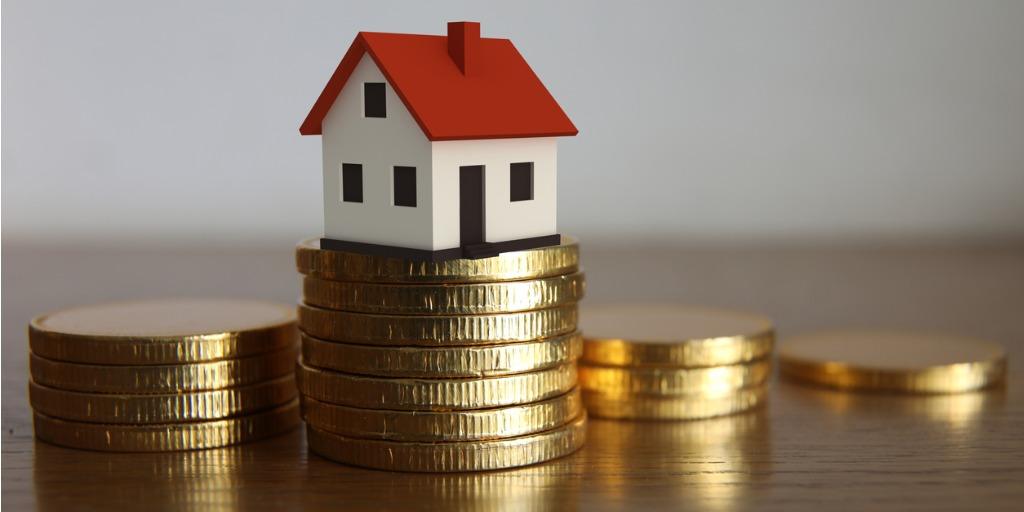
Property investment in Singapore offers financial stability, rental income, and long-term gains.
The thriving market attracts locals and foreigners.
Research, invest wisely, and consider mortgage loans or co-investing.
Strategies include maximizing rental income, buy-and-hold, and property renovations.
Understand taxation, property types, and market trends for informed decisions.
Key Takeaways
| Key Takeaway | Information |
|---|---|
| Property investment benefits | – Provides financial stability, rental income, and long-term gains.<br>- Offers diversification of investments.<br>- Considered a tangible asset that tends to hold its value well over time. |
| Property investment in Singapore | – Thriving market attracts locals and foreigners.<br>- Stable political and economic climate.<br>- Cooling measures implemented by the government to curb rapid rise in property prices. |
| Rental income and rental yield | – Rental income generated by renting out property to tenants.<br>- Rental yield in Singapore ranges from 2% to 4% for residential properties.<br>- Rental yield is calculated as the annual rent as a percentage of the property’s purchase price. |
| Capital appreciation and gains | – Potential increase in property value over time (capital appreciation).<br>- Profit made from selling property at a higher price than the purchase price (capital gains). |
| Real Estate Investment Trusts | – REITs allow investors to invest in a portfolio of properties without owning the property themselves.<br>- Types of REITs in Singapore include commercial, industrial, residential, and healthcare REITs. |
| Tips for successful property investment | – Conduct thorough research on the property market and potential tenants.<br>- Invest within your means and consider all costs associated with property ownership.<br>- Find the right property that aligns with investment goals and has growth potential. |
| Investing without a huge capital | – Take advantage of mortgage loans to purchase property with smaller upfront capital.<br>- Consider co-investing to pool resources and invest in more expensive properties.<br>- Invest in REITs for property exposure without owning physical property. |
| Strategies for making money | – Maximize rental income through good tenant selection.<br>- Implement buy-and-hold strategy for long-term investment with potential returns.<br>- Renovate and flip properties for quick profits. |
| Factors for property investment | – Consider location, accessibility, and potential for future development.<br>- Understand market demand and trends.<br>- Look for good property deals by conducting thorough research and being cautious of discounts. |
| Role of home loans in investment | – Understand different types of home loans and their terms.<br>- Assess impact of interest rates on cash flow.<br>- Manage cash flow responsibly to meet loan obligations. |
| Taxation and property investment | – Understand different types of property taxes in Singapore.<br>- Manage and minimize property taxes through deductions, exemptions, and tax planning strategies.<br>- Stay up-to-date on tax laws and regulations. |
| Exploring different property types | – Residential properties are commonly sought after by individual investors, while commercial properties require higher investment capital.<br>- Choice depends on goals, risk appetite, and investment strategy. |
| Rental properties as income source | – Understand rental yields and how to calculate them.<br>- Choose the right tenant based on credit score, employment status, and rental history.<br>- Manage rental property effectively for smooth tenancy. |
| Singapore property market trends | – Property market is showing signs of recovery with increasing transaction volumes and stabilizing prices.<br>- Government measures stimulate demand and development in the private property sector. |
| Overseas property investment | – Can provide diversification and potential for higher returns.<br>- Risks include unfamiliarity with local laws, currency fluctuations, and difficulty in remote management.<br>- Thorough research is essential. |
| Factors affecting property prices | – Interest rates, supply and demand, government regulations, and international economic conditions.<br>- Stay updated with market trends and forecasts for informed decisions. |
Introduction to Property Investment in Singapore
What is Property Investment?
Property investment refers to buying real estate to generate income and capital appreciation.
This involves purchasing properties that can be rented out to tenants or resold for a profit in the future.
Why Invest in Property?
Investing in property can provide long-term financial stability and security.
Property investment is one of the few asset classes offering rental income and capital gains.
Property is also considered a tangible asset that tends to hold its value well over time.
Property Investment in Singapore: An Overview
Singapore’s property market is one of the world’s hottest, with locals and foreigners investing in the city-state’s real estate.
In recent years, the government has implemented cooling measures to curb the rapid rise in property prices.
However, property investment in Singapore remains a popular option due to the city-state’s stable political and economic climate.
The Benefits of Being a Property Investor

Rental Income and Rental Yield
One of the primary benefits of being a property investor is the rental income generated by renting out your property to tenants.
Rental yield is the rent earned annually as a percentage of the property’s purchase price.
In Singapore, residential rental yields typically range from 2% to 4%.
Capital Appreciation and Capital Gains
Another benefit of property investment is the potential for capital appreciation and capital gains.
Capital appreciation refers to the increase in the value of your property over time, while capital gains refer to the profit made from selling your property at a higher price than you paid for it.
Diversification of Investments
Investing in property also diversifies investments, reducing the overall risk of your investment portfolio.
Property investment is generally considered a low-risk investment option when done correctly.
Understanding Real Estate Investment Trusts (REITs)
What are REITs?
Real Estate Investment Trusts (REITs) is an investment fund that allows investors to pool their money together to invest in a portfolio of properties without owning the property themselves.
REITs offer investors exposure to real estate without the traditional costs and responsibilities associated with owning and managing properties.
Types of REITs in Singapore
Singapore has several REIT types: commercial, industrial, residential, and healthcare.
Every kind of REIT focuses on a specific property type, providing investors with options to invest in various real estate market sectors.
Benefits and Risks of Investing in REITs
Investing in REITs provides investors with a diversified portfolio of properties that can generate recurring income.
REITs are also highly liquid, allowing investors to quickly buy and sell their shares on the stock exchange.
However, like any investment, REITs have risks, such as fluctuations in property prices and interest rates.
Tips for Becoming a Successful Property Investor

Do Your Research
Before investing in any property, conducting thorough research on the property market is essential, including trends, regulations, and the local economy.
Researching the property developer, location, and potential tenants can also provide valuable insights into the property’s potential as an investment.
Invest within Your Means
Investing within your means is crucial to avoid overextending yourself financially.
This means determining your budget and sticking to it.
It is essential to consider all the costs of owning a property, including maintenance fees, property taxes, and mortgage payments.
Find the Right Property
Finding the right property is critical to maximizing your investment returns.
This means finding a property that meets your investment goals, such as rental income or capital appreciation.
It is also essential to consider the location, property type, and potential for growth in the property’s value.
How to Invest in Property Without a Huge Capital
Take Advantage of Mortgage Loans
Mortgage loans allow individuals to purchase a property with less capital upfront.
This means you can invest in property without paying the total purchase price out of pocket.
However, it is essential to consider the risks associated with taking on debt and ensure you can make the mortgage payments.
Consider Co-Investing
Co-investing allows investors to pool their money together to purchase a property, reducing the capital needed from each investor.
This will enable investors to invest in more expensive properties that may generate higher returns.
Investing in REITs
Investing in REITs is an excellent way to invest in property without owning the physical property itself.
REITs can be purchased through the stock market, providing investors with a highly liquid investment option.
Strategies for Making Money from Property Investments

Maximizing rental income through good tenant selection
A good tenant selection process is critical to maximizing your rental income.
As a landlord, you must ensure your tenants are reliable and will pay their rent on time.
To achieve this, consider factors such as credit scores, employment stability, and rental history when evaluating potential tenants.
Implementing a buy-and-hold strategy
A popular investment strategy for property investing is the buy-and-hold strategy.
This involves purchasing a property to hold onto it for a more extended period and to sell it at a higher value later on.
As property values tend to appreciate over time, it is a great way to make a long-term investment with significant potential for returns.
Renovating and flipping properties for profit
Another strategy is renovating and flipping properties.
This requires more upfront funds but can generate quick returns if executed correctly.
This involves purchasing a run-down property, renovating it, and selling it for a profit.
Factors to Consider When Determining a Property’s Investment Potential
Location and accessibility
The location of a property can significantly impact its investment potential.
Proximity to public transportation, amenities, and schools are all important factors to consider when evaluating a property’s location.
Potential for future development
Properties with potential for future development can offer significant long-term investment potential.
For example, near upcoming infrastructure projects or government redevelopments can help drive the property’s value over time.
Market demand and trends
Understanding market demand and trends is essential to identify properties with higher investment potential.
This includes looking at areas with high rental demand or high potential for property value appreciation.
Spotting a Good Property Deal in the Singapore Market

Do thorough research on the property and market.
Before investing in any property, conduct thorough research on the property and its market.
Review market trends and evaluate the property’s potential return on investment by looking at comparable prices and rental rates.
This can help you determine whether the investment is a good deal.
Consider undervalued properties
Undervalued properties may offer opportunities for higher returns if the investor is willing and able to hold onto the property until its value increases.
This is a longer-term investment strategy, but it can ultimately pay off.
Be cautious of overly discounted properties
While discounts on properties may seem attractive, underlying issues could cost more in the long run or prevent the property from generating rental income.
Always do your due diligence before making any investment decision.
The Role of Home Loans in Property Investment
Understanding different types of home loans and their terms
Understanding the various home loan options available to investors in Singapore is essential for making informed decisions.
This includes understanding the terms and conditions of each loan before choosing to invest in a property.
Assessing the impact of home loan interest rates on cash flow
The interest rate on a home loan can significantly impact an investor’s cash flow, so it is essential to assess the impact of interest rates when evaluating the potential profitability of an investment property.
This includes estimating your monthly mortgage payments and factoring in other costs of owning the property, such as maintenance fees if purchasing a condo or HDB flat.
Managing cash flow responsibly
Ensuring steady rental income and managing expenses can help investors meet their home loan obligations and improve their chances of long-term success in property investment.
Taxation and Property Investment: Understanding Property Tax

Understanding different types of property taxes in Singapore
Singapore has several taxes associated with property investment, such as property tax and Additional Buyer’s Stamp Duty (ABSD).
Understanding these taxes is crucial for investors to make informed decisions and manage their finances responsibly.
Managing and minimizing property taxes
Investors can manage and minimize property taxes by claiming tax deductions and exemptions or utilizing tax planning strategies.
Staying up-to-date on tax laws and regulations is also essential to avoid any unnecessary financial impact.
Staying up-to-date on tax laws and regulations
Tax laws and regulations related to property investment can change frequently.
Staying up-to-date on these changes is essential to avoid any unnecessary financial impact.
Exploring Different Types of Investment Properties
Determining the Kind of Property You Want to Invest In
When investing in property, you need to decide what kind of property you want to invest in.
There are different types of properties that one can invest in, depending on their goals, financial situation, and risk tolerance.
Residential properties are one type of property that many people invest in because they are considered a safer investment.
Commercial and industrial properties are other types of properties that can be invested in for higher returns.
Choosing the Right Investment Program
Many investment programs are available for those who want to invest in property but need more time or resources to manage an actual property.
Real Estate Investment Trusts (REITs) and property funds are popular investment programs.
REITs allow investors to put their money into a pool of real estate investments managed by a professional team.
Property funds enable investors to buy shares in a fund that buys and manages a portfolio of properties.
So, it’s essential to determine which investment program suits you, depending on your financial goals and risk tolerance.
Tips to Spot Property Assets with Potential
When investing in property, finding a property with growth potential is essential.
But how do you identify a property asset with potential?
One way is to look for properties located in areas with high demand for rental property.
Also, look for properties priced below their market value or needing renovation.
Properties with good transport links or near amenities like schools, shops, and hospitals are also worth considering.
Rental Properties: A Lucrative Income Source for Investors

Assessing the Rental Property Market in Singapore
Rental properties can be a great source of income for property investors.
Therefore, it’s crucial to analyze Singapore’s rental property market to determine its growth potential.
One way to assess the rental property market is to look at the rental yields.
Rental yields are the annual return on your rental property investment, expressed as a percentage of the property’s value.
A good rental yield is typically above 4% annually.
This indicates that your rental income is outperforming your investment financing costs.
Financial Tips for Investing in Rental Properties
Investing in rental properties can come with some financial challenges.
Some challenges include dipping into your funds, managing expenses, and maximizing profit margins.
One tip is to start small, especially if it’s your first property.
This will help you understand the market better and teach you how to manage your income and expenses.
Another tip is to structure your housing loan so that the repayments do not affect your rental income.
Lastly, set aside some funds for property maintenance, taxes, and insurance.
Legal Considerations When Renting out Your Property
Renting out your property comes with specific legal considerations.
You must comply with Singapore’s rental laws and regulations as a landlord.
You need to prepare a tenancy agreement, register your rental property with the authorities, and ensure that your rental property meets the safety and habitability standards set out by the authorities.
You must also manage the relationship with your tenants, including dealing with complaints, inspections, and repairs.
The Singapore Property Market: Trends and Opportunities
Market Analysis: Understanding Property Prices and Market Value in Singapore
Understanding the current trends and opportunities in the property market is essential when making investment decisions.
It’s important to understand factors that affect property prices, like property tax, lease agreements, and the economy.
The implementation of property cooling measures by the government also had an impact on the property market.
Hence, you must monitor property market trends and update yourself with the latest news and developments.
The Market for Investors and Speculators Looking to Profit
Some people invest in property as a strategy to make quick profits.
Property flipping, or buying low and selling high, is a widely known strategy for investors and speculators.
It’s also important to note that investing in property requires patience and financial stability.
While property values across the board may rise over the long term, there may be fluctuations in the short time.
Therefore, investors who want to profit by investing in the property must have a strategic approach and hold the property for the right time to maximize their return on investment.
Setting Up a Company for Property Investment
Setting up a company for property investment can offer some benefits for investors.
It protects personal assets, and it can help to minimize taxes.
It also gives investors a better structure for managing their property portfolio.
Setting up a company, however, is a process that requires a good amount of research and planning.
Investors must weigh the pros and cons to determine their needs.
Analyzing Property Prices and Market Value in Singapore

What factors determine property prices in Singapore?
Several factors affect property prices in Singapore, including location, demand, supply, and market sentiment.
The location of a property is a significant factor in determining its value – properties closer to amenities like hospitals and schools are generally more valuable.
Demand and supply also play a vital role in property pricing in any market.
How can investors analyze the market value of properties?
One way to analyze the property’s market value is to use a comparative market analysis, which compares the value of your property to similar properties in the area.
Investors may also want to consider the rental income of surrounding properties and the property type, age, and condition to determine the potential rental yield.
What are the best strategies for investing in the Singapore property market?
The best strategy for investing in the Singapore property market is to conduct thorough research and analysis before purchasing.
Investors may also want to consider different REITs or real estate investment trusts to diversify their property portfolio.
Another way to maximize returns is to buy properties that need renovation and do the remodeling work before putting them up for rent.
Legal and Financial Considerations When Buying and Selling Property
Determining if a Property is Worth Investing In
Before investing in a property, you must determine if it’s worth investing in.
You need to research and calculate the potential for growth and returns on investment.
Some factors affecting the property’s growth potential include the location, size, market demand, and condition.
You must also assess your financing options, such as property or housing loans, to determine what you can afford.
An excellent real estate agent or a method of property valuation can assist with this process.
Singapore Permanent Residents: Legal Considerations When Buying Property
As a foreigner, there are certain restrictions on buying property in Singapore.
Singapore Permanent Residents, however, can buy a second or third property if they meet specific criteria.
They must also pay additional taxes and fees when purchasing a property.
On the other hand, Singapore citizens can buy any property with no additional surcharges or fees.
Tips for Successful Delivery of Property Projects
Delivering successful property projects requires careful planning and execution.
You must understand the market demand and create a feasibility study to plan the project scope.
You must also budget the expenses, secure financing, and coordinate with contractors and workers.
Hiring an excellent real estate contract or coordinating with a crowdfunding platform can ease the process.
It’s also essential to ensure that the property is delivered on time, within budget, and in good condition.
Conclusion
In conclusion, property investment in Singapore offers an opportunity for long-term financial stability and security.
By generating rental income and capital appreciation, property investors can enjoy the benefits of a tangible asset that tends to hold its value well over time.
Additionally, investing in real estate diversifies investments, reducing overall portfolio risk.
Frequently Asked Questions
What is property investment?
Property investment involves the purchase, ownership, management, rental, and sale of a piece of property to generate income or profit.
What are the risks involved in property investment?
The risks of property investment include the potential for the property to lose value, damage to the property, unexpected costs, and changes in market conditions that may impact the property’s value.
What are the costs associated with property investment?
Costs incurred in property investment include the purchase price of the property, taxes, insurance, maintenance costs, and property management fees.
What are REITs?
Real estate investment trusts (REITs) own, operate, or finance income-generating real estate.
Investors can purchase shares in these trusts and receive dividends based on the income generated by the properties owned by the trust.
What are mortgages?
A mortgage is a loan used to finance the purchase of a property.
The borrower makes regular payments to repay the loan with interest over a set period gradually.
What are funds?
Funds are investment vehicles that pool money from multiple investors to invest in various assets, including properties.
Examples of funds include mutual funds and real estate investment trusts (REITs).
What is rental income?
Rental income is the income generated by renting a property to a tenant.
This income can cover the mortgage payments and other expenses associated with property ownership.
What is capital?
Capital refers to the money invested in a property.
This can include the down payment and any money invested in improvements or upgrades to the property.
What is rental yield?
Rental yield is the return on investment (ROI) from renting a property.
It is calculated as the annual rental income divided by the total value of the property.




















